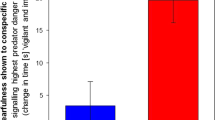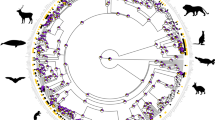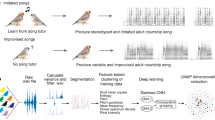Abstract
IN a previous letter to NATURE1 one of us directed attention to certain striking correlations between the findings independently arrived at by physiologists in the laboratory and students of bird behaviour in the field. Since then a further parallelism has come to light which it seems of sufficient interest to record. Wiesner and Sheard2 state that partial removal of the prepituitary in adult male rats usually results in what they style partial diserotisation. The normal copulatory process consists in a definite and rapid sequence of acts. In partially hypophysectomised males, the sequence is usually slowed down and interrupted, consisting merely of hesitant acts of mounting, often abortively repeated many times.
This is a preview of subscription content, access via your institution
Access options
Subscribe to this journal
Receive 51 print issues and online access
$199.00 per year
only $3.90 per issue
Buy this article
- Purchase on Springer Link
- Instant access to full article PDF
Prices may be subject to local taxes which are calculated during checkout
Similar content being viewed by others
References
NATURE, 129, 166, Jan. 30, 1932.
NATURE, 132, 641, Oct. 21, 1933.
Character and Personality, 2, 189; 1934.
Author information
Authors and Affiliations
Rights and permissions
About this article
Cite this article
HUXLEY, J., HOWARD, E. Field Studies and Physiology: a Further Correlation. Nature 133, 688–689 (1934). https://doi.org/10.1038/133688b0
Issue Date:
DOI: https://doi.org/10.1038/133688b0
This article is cited by
-
Der Kumpan in der Umwelt des Vogels
Journal für Ornithologie (1935)
Comments
By submitting a comment you agree to abide by our Terms and Community Guidelines. If you find something abusive or that does not comply with our terms or guidelines please flag it as inappropriate.



